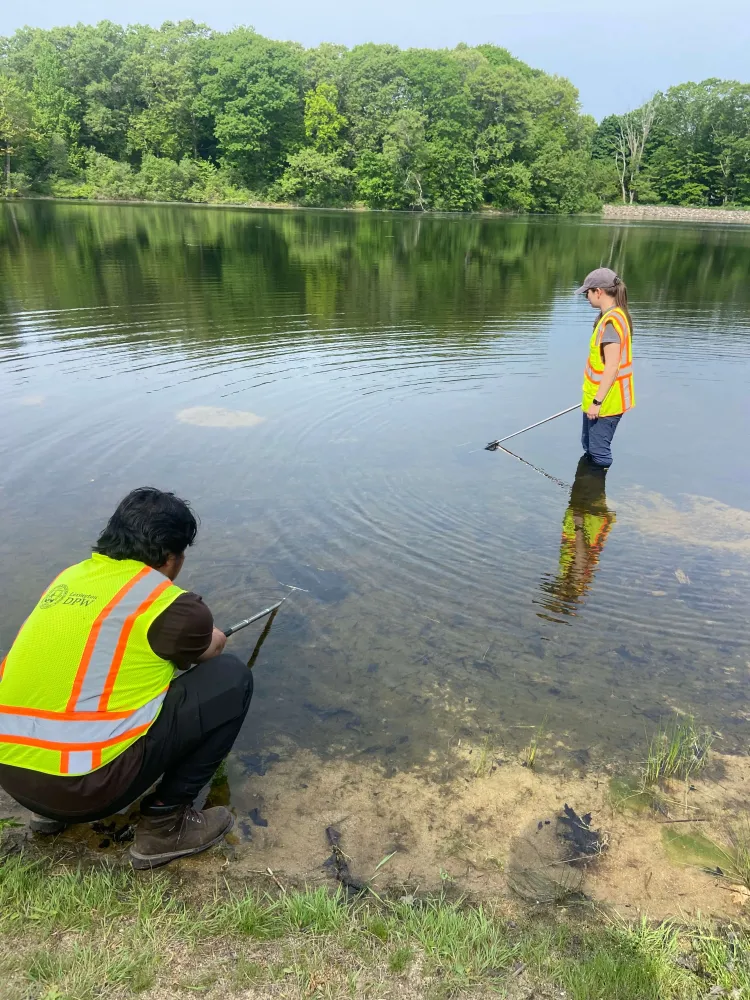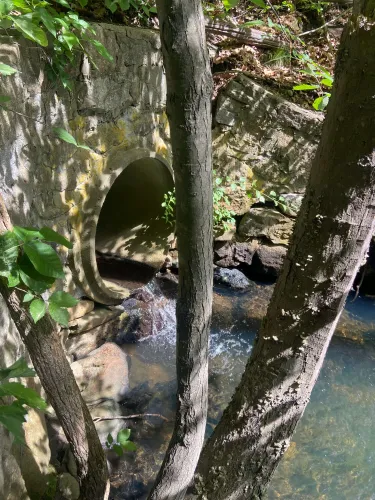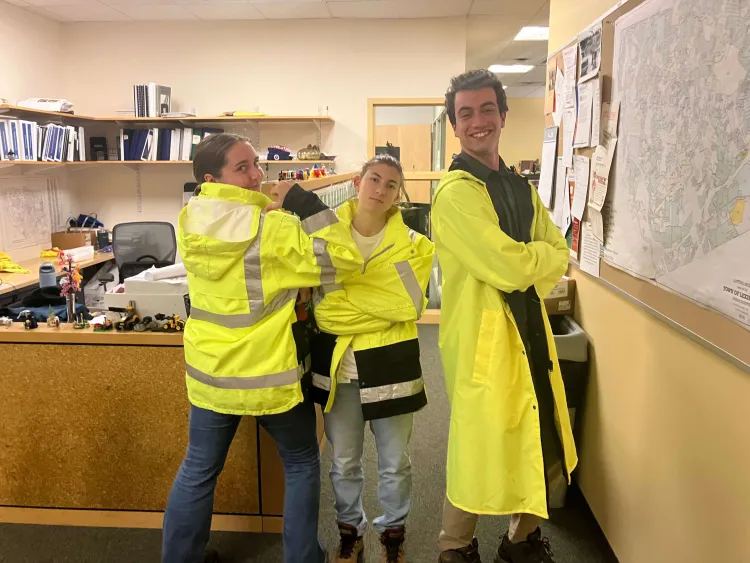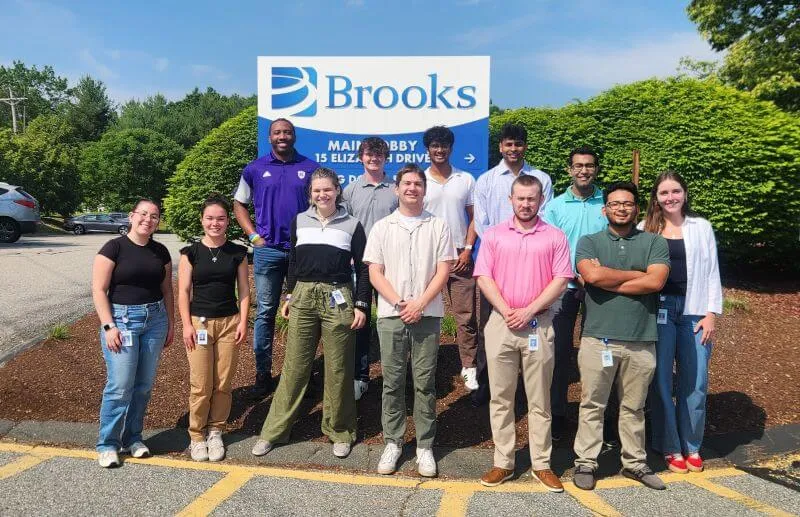When Chloe Molinari ‘26 first arrived at University of Vermont from Massachusetts, she planned on becoming an environmental engineer but found pretty quickly that it wasn’t the right fit.
“I’m not incredibly good at math,” she admitted, “but I was always very interested in political science.” That realization led Chloe to the Rubenstein School of Environment and Natural Resources and the Sustainability, Ecology and Policy major. “It combines what I wanted to do originally: working with the environment and making an impact with soft sciences like political science and sociology.”
Over the past two summers, Chloe was able to secure experiential learning opportunities that focused on the environment through policy and local government. After completing her most recent internship—this time with a semiconductor manufacturer—she feels like she’s still getting the environmental engineering experience she wanted originally.
“I switched out of engineering, but for some reason I just can't get away from engineers,” she joked. “Through both of my internships I felt like I still got that engineering experience.”

Chloe’s first internship was over the summer in 2024 working with the Department of Public Works in Lexington, Mass., focusing on stormwater drainage, public safety and sample collection.
“We were outside all day, every day, and I was with other interns collaborating with senior engineers in the department; I really enjoyed that. Getting to talk to people and problem solve, I felt that we were very involved in everything they were doing, which I loved.”

Chloe appreciated the small-town sense of community working for the municipality, getting to work with the Lexington’s Town Manager, its Tree Warden, and other local government officials in a collaborative manner.
“The impact was very local,” Chloe recalled. “We were able to see if there were high levels of E. coli, we could trace it back to where it was coming from and fix that problem; it’s a quick return so that was gratifying.”

This past summer, Chloe secured an internship in environmental compliance for Brooks Automation, a robotics company just down the road in Chelmsford. The internship offered less fieldwork, but plenty of opportunity to make an impact.
Under the Dodd-Frank Act, public companies are required to disclose whether their products have “conflict minerals”—raw materials sourced in regions of the world, where profits are used to finance armed conflict, human rights abuses, and violence. While Brooks is a private company, many of their clients are public, and Chloe would pull material reports and mark if components were coming from conflict regions.
“I contributed to transparency with our environmental regulations throughout the company,” Chloe said. “I would create write-ups on new environmental regulations and how Brooks was complying with it, which would be shared with other people.”
“I felt good about what I was doing,” said Chloe. “It was a lot of Excel and pulling material from databases, but I do think that I helped bring to light [Brooks’] part in environmental regulations. People might think private business doesn't care about environmental regulations and find ways to get around them; I never felt that way with Brooks. That type of integrity to really make sure that they were doing their part, I enjoyed that a lot, I thought that that was very important.”

Looking back on these very different internships, Chloe underscored the importance of gaining a multitude of career-building, real-life experiences to put academic concentrations into practice.
“Having different internships helped me so much,” she said. “Learning in courses is so beneficial, but once you're able to implement that into real life work, it's totally different. You might find that you like something so different than what you thought it was in the classroom setting.”
As for advice on how others can secure an internship Chloe stressed the power of one’s network—the community of peers, colleagues, and community members who can help students discover an opportunity.
"Talking about it with people is super important because someone might know somebody else that has an opening,” she says. “With my first [internship], one of my neighbors is a senior civil engineer in Lexington. Work with any network you’ve created – your advisor, your family and friends – and tell everyone and anyone that you're looking for an internship.”
As Chloe prepares for the final stretch of her undergraduate chapter, she emphasizes the importance of getting real-world experience, even if that experience isn’t the exact fit you’re looking for, and just do it.
“Any internship that kind of sounds interesting, just set up the interview,” Chloe stressed. “It's great practice at the least, and it kind of gives you a chance to ask more questions about that opportunity. It’s super important to gain all the different experiences before deciding on a career.”
To learn more about the Sustainability Ecology and Policy Major, see the RSENR page.
To learn more about upcoming networking events and opportunities, see the Career Center’s events page.
To learn more about networking, see the Career Center’s resource page.
